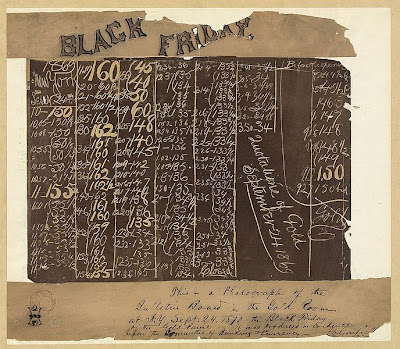 |
| Black Friday: Day following U.S. Thanksgiving holiday at Target shop. |
The origin of the term Black Friday is debated among the commentators. Its legendary position, however, as the start of the gift-giving holiday season following Thanksgiving is not debated in the United States. It marks a time when traders in goods and services respond to a sharp spike in consumer demand. The retail industry revs up its marketing and promotional efforts in anticipation and retailers organize with other retailers to display holiday lights and other decorations in public squares across America.
The kick-start of the Christmas holiday weekend is no less celebrated by shoppers. Some shoppers have created a sport of the gift-giving season. They arrive at retail shops at twilight hours in hopes of being counted among the first to select the best of the special goods, spurring demand for community safety services with increases in policing and retail security. The history of the term also reminds us of the hoarding and speculations in the gold markets of 1869.
The Retail Shopper's Rush for Black Friday Trade Deals
As early as 1966, the term Black Friday was being used by the Philadelphia Police Department as a term of non-endearment to describe the Friday following Thanksgiving Day. The start of the Christmas shopping season was noted as requiring an increase in safety and security mobilization by the police. During Black Friday, police have to manage increased traffic transportation problems that arise from large numbers of shoppers in motor vehicles, on public transportation and other transport modes.
Retail security is also a big consideration for shop owners as the race for holiday deals fuel an increase in shopper disputes simply as a result of the increased number of consumers. The skirmishes of holiday shoppers have created pretty bizarre Black Friday lore. Competition for holiday deals is bound to result in heightened duties for retail security personnel.
Black Friday and the 1869 Gold Speculation Financial Crisis
 |
| Photograph of the black board in the New York Gold Room, September 24, 1869, showing the collapse of the price of gold. Handwritten caption by James A. Garfield indicates it was used as evidence before the Committee of Banking & Currency during hearings in 1870. |
One cannot discuss the history of Black Friday without noting its use in the 19th century. The term was not used to describe the day after Thanksgiving Day, but September 24, 1869 – the day gold commodity prices plummeted on the former New York Gold Exchange. As the story goes, gold speculation by James Fisk and Jay Gould arose from public concerns that the U.S. government would no longer back issued dollar currencies by gold reserves. The currency system had changed from a commodity-backed monetary system to a fiat monetary system.
In the reports on the U.S. Congressional hearings that followed against Fisk and Gould, it is noted that they sought to profit from these changes through efforts to hoard gold, manipulate the executive office of U.S. president Ulysses S. Grant, and commit large speculative trades through the New York Gold Exchange. In addition to being described as Black Friday, this financial market run is also called the Fisk-Gould scandal.
Cyber Monday: Online Retail Holiday Shopping Trends
In 2003, online shopping trends began registering with retail industry organizations like the National Retail Federation (NRF). It seems that the Thanksgiving weekend was being fully enjoyed by some as a more solitary time celebrated with family and friends. Too busy during the Thanksgiving weekend for shopping, they were appearing online to shop on Monday in great numbers. By 2005, the term Cyber Monday was being used by the NRF to describe the phenomenon.
“CyberMonday.com was visited by more than 15.8 million people last holiday season,” according to 'CyberMonday.com Redesigned to Help Shoppers Save Money this Holiday Season', an NRF press release issued on Nov. 15, 2010. According to the release, the CyberMonday.com website, alone, generated over $6 million in retail sales on Cyber Monday 2009.
Black Friday as a North America Holiday Shopping Season
The U.S. is certainly not one to leave the rest of North America out of the gift-giving shopping fever. On November 23, 2010, Don Fraser, writing for Canada's The Standard, which is published from St. Catharines, reported the news story “Black Friday's tentacles reach over border.” South of the U.S. border, KVOA.com reports that Arizona shopkeepers at Tucson are preparing for both local and Mexican Black Friday shoppers. Consumers at Mexico's border towns are trekking across nation borders to get in on Thanksgiving Day weekend holiday deals.
Black Friday has no certain historical origin. It poses numerous headaches on retail security and police officers. It is also the name used to describe one of the earliest gold market crashes in United States. While it it met with hesitancy by some Canadians, leads Mexican shoppers running to the border, it is also an important part of North American retailers' marketing plans – and could not have come soon enough for this year's traders.
About the author
Vanessa Cross is a freelance writer who writes about international trade, business law and small business development issues. Copyright 2013.

No comments:
Post a Comment
Note: Only a member of this blog may post a comment.